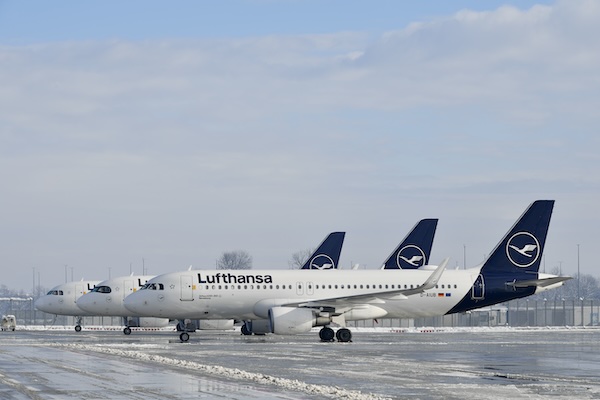Lufthansa has recommenced its flight operations following significant disruptions caused by a 27-hour strike by ground handlers. Passengers are advised to expect continued delays and cancellations as services gradually return to normal.
Lufthansa’s operations took a significant hit following a 27-hour strike by ground handlers which led to the cancellation of 80% to 90% of its flights, affecting over 100,000 passengers. This disruption primarily targeted the airline’s major hubs at Frankfurt and Munich. The strike was initiated as part of a pay dispute by the Verdi union, impacting additional German airports as well.
The airline announced plans to gradually resume services at Frankfurt and Munich airports post-strike on Thursday morning. Despite the end of the strike, passengers were advised of potential delays and cancellations due to the residual effects of the industrial action. “Due to the massive impact of the strike on our flight operations, there may still be a few delays or flight cancellations,” the airline stated.
While the strikes have drawn attention to labour issues within the airline industry, they also highlight the broader challenges carriers face in balancing operational efficiency with employee satisfaction. This scenario is emblematic of the ongoing labour conflicts affecting the aviation sector globally.
Social media was abuzz with passenger reactions, varying from frustration to understanding amid the chaotic travel experience. Many took to platforms like Twitter to express their experiences and seek assistance, highlighting the critical role of effective communication during such crises.
Lufthansa’s financial performance will likely see short-term impacts, but strategic measures are expected to alleviate prolonged monetary strain. The importance of maintaining a balance between cost control and workforce satisfaction remains a critical focus for sustained growth.
Other carriers operating in and out of German airports experienced ripple effects, adapting schedules to accommodate the disruptions. This scenario is a reminder of the critical need for robust contingency planning within airline operations, essential for minimising disruption impact.
As Lufthansa navigates the aftermath of this strike, its approach to engaging with union representatives will be watched closely by industry peers. Proactive measures and continuous dialogue are pivotal in circumventing prolonged industrial actions that can cripple operations.
Lufthansa’s resumption of flights signals a return to normalcy, yet lingering delays persist due to the strike’s aftermath. Effective communication and strategic negotiations with unions remain paramount to ensuring stability and minimising future disruptions.

